Erica Verrillo's Blog, page 53
February 13, 2018
Ursula K. LeGuin, My Hero: Dead at 88
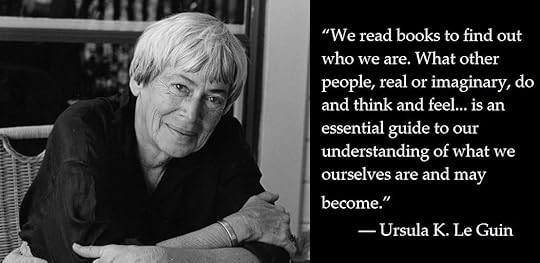 Ursula LeGuin was my hero. And I made sure to tell her that.
Ursula LeGuin was my hero. And I made sure to tell her that.In 1985, LeGuin was invited to speak at Dartmouth College by the Anthropology Department. At the time, I was an adjunct lecturer in the Anthropology Department, teaching a course in Linguistics. When I heard that LeGuin was coming to Dartmouth, I was thrilled. I was even more thrilled when I discovered that she had been seated right next to me.
"You are my hero," I whispered. I was not just starry-eyed, I was awestruck.
She ignored me.
LeGuin's book, The Left Hand of Darkness, had left an indelible mark on me when I read it in college. Up until the publication of her book, science fiction writers were essentially an old boys' club. From the first science fiction by Jules Verne, straight up through the post WWII titles of Asimov, Bradbury, Aldiss, Vonnegut, and Anderson, men predominated. These were all great writers whose works focused on "hard" science, ethical dilemmas surrounding artificial intelligence, or space sagas, and in which women, if they appeared at all, were thrown in for sex appeal.
LeGuin changed all that with The Left Hand of Darkness, a book that explored gender. It hit the bookstores in 1969, just as the feminist movement was reaching a peak. The book not only broke the gender barrier, it featured a black protagonist, Genly Ai. LeGuin's wide-ranging explorations of sexuality, gender roles, social change, capitalism, race, Taoism, and civil disobedience struck a nerve. Those of us who were involved in the social activist movements of the 70s read, and discussed at length, every one of her books.
Because it was ground-breaking, The Left Hand of Darkness was roundly and soundly rejected by publishers. LeGuin, in an effort to encourage writers to "Hang in there!" posted the full rejection letter on her site. (Miss Kidd was her agent.)
Dear Miss Kidd,
Ursula K. Le Guin writes extremely well, but I'm sorry to have to say that on the basis of that one highly distinguishing quality alone I cannot make you an offer for the novel. The book is so endlessly complicated by details of reference and information, the interim legends become so much of a nuisance despite their relevance, that the very action of the story seems to be to become hopelessly bogged down and the book, eventually, unreadable. The whole is so dry and airless, so lacking in pace, that whatever drama and excitement the novel might have had is entirely dissipated by what does seem, a great deal of the time, to be extraneous material. My thanks nonetheless for having thought of us. The manuscript of The Left Hand of Darkness is returned herewith. Yours sincerely,
The Editor
21 June, 1968
(When it was finally published, The Left Hand of Darkness went on to win both Hugo and Nebula Awards. It has since been reprinted 30 times, and it redefined the genre.)
When I heard that Ursula LeGuin had died on January 22nd, I thought of that talk she gave at Dartmouth. She had brushed me off, but she regretted it. The next morning, she invited me to have breakfast with her. I brought my baby daughter, who was only two months old, and she expressed her joy in motherhood. And years later, when I published my first novel, a children's fantasy based on bedtime stories I had told my daughter, I sent her a copy. She wrote me a gracious note of thanks. Two decades had passed, but she had not forgotten me.
Ursula LeGuin was, and always will be, my hero.
Published on February 13, 2018 06:08
February 13th, 2018
 Ursula LeGuin was my hero. And I made sure to tell her that.
Ursula LeGuin was my hero. And I made sure to tell her that.In 1985, LeGuin was invited to speak at Dartmouth College by the Anthropology Department. At the time, I was an adjunct lecturer in the Anthropology Department, teaching a course in Linguistics. When I heard that LeGuin was coming to Dartmouth, I was thrilled. I was even more thrilled when I discovered that she had been seated right next to me.
"You are my hero," I whispered. I was not just starry-eyed, I was awestruck.
She ignored me.
LeGuin's book, The Left Hand of Darkness, had left an indelible mark on me when I read it in college. Up until the publication of her book, science fiction writers were essentially an old boys' club. From the first science fiction by Jules Verne, straight up through the post WWII titles of Asimov, Bradbury, Aldiss, Vonnegut, and Anderson, men predominated. These were all great writers whose works focused on "hard" science, ethical dilemmas surrounding artificial intelligence, or space sagas, and in which women, if they appeared at all, were thrown in for sex appeal.
LeGuin changed all that with The Left Hand of Darkness, a book that explored gender. It hit the bookstores in 1969, just as the feminist movement was reaching a peak. The book not only broke the gender barrier, it featured a black protagonist, Genly Ai. LeGuin's wide-ranging explorations of sexuality, gender roles, social change, capitalism, race, Taoism, and civil disobedience struck a nerve. Those of us who were involved in the social activist movements of the 70s read, and discussed at length, every one of her books.
Because it was ground-breaking, The Left Hand of Darkness was roundly and soundly rejected by publishers. LeGuin, in an effort to encourage writers to "Hang in there!" posted the full rejection letter on her site. (Miss Kidd was her agent.)
Dear Miss Kidd,
Ursula K. Le Guin writes extremely well, but I'm sorry to have to say that on the basis of that one highly distinguishing quality alone I cannot make you an offer for the novel. The book is so endlessly complicated by details of reference and information, the interim legends become so much of a nuisance despite their relevance, that the very action of the story seems to be to become hopelessly bogged down and the book, eventually, unreadable. The whole is so dry and airless, so lacking in pace, that whatever drama and excitement the novel might have had is entirely dissipated by what does seem, a great deal of the time, to be extraneous material. My thanks nonetheless for having thought of us. The manuscript of The Left Hand of Darkness is returned herewith. Yours sincerely,
The Editor
21 June, 1968
(When it was finally published, The Left Hand of Darkness went on to win both Hugo and Nebula Awards. It has since been reprinted 30 times, and it redefined the genre.)
When I heard that Ursula LeGuin had died on January 22nd, I thought of that talk she gave at Dartmouth. She had brushed me off, but she regretted it. The next morning, she invited me to have breakfast with her. I brought my baby daughter, who was only two months old, and she expressed her joy in motherhood. And years later, when I published my first novel, a children's fantasy based on bedtime stories I had told my daughter, I sent her a copy. She wrote me a gracious note of thanks. Two decades had passed, but she had not forgotten me.
Ursula LeGuin was, and always will be, my hero.
Published on February 13, 2018 06:08
February 9, 2018
3 New Agents Actively Seeking Mysteries, Fantasy, Romance, YA & MG, Nonfiction and More
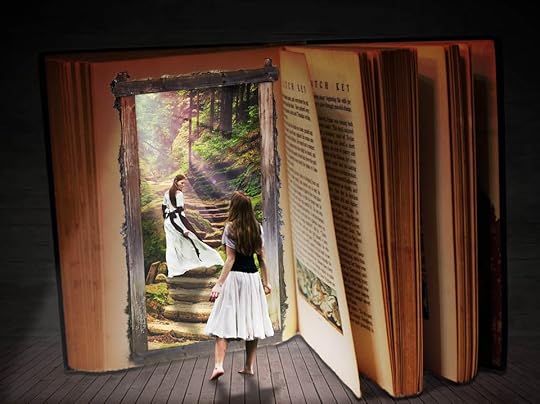 Here are three new agents seeking clients. Jennie Kendrick is interested in YA and MG fiction, particularly Own Voices works. Sandra Jordan represents mysteries exclusively. Whitney Ross represents middle grade, young adult, and adult fiction across all genres, with an emphasis on historical, SF & fantasy, romance, and contemporary fiction. She is also open to non-fiction submissions in the areas of design, cooking, and fashion.
Here are three new agents seeking clients. Jennie Kendrick is interested in YA and MG fiction, particularly Own Voices works. Sandra Jordan represents mysteries exclusively. Whitney Ross represents middle grade, young adult, and adult fiction across all genres, with an emphasis on historical, SF & fantasy, romance, and contemporary fiction. She is also open to non-fiction submissions in the areas of design, cooking, and fashion.ALWAYS check the agency website before submitting. Agents may switch agencies or close their lists, and submission requirements may change.
If these agents do not suit your needs, you can find a comprehensive list of new and established agents seeking clients here: Agents Seeking Clients.
_______________________
Jennie Kendrick at Lupine Creative
Jennie Kendrick is a former criminal defense attorney, history major, and continues to be a lifelong reader. She began writing for Forever Young Adult, a popular review site for YA fans who are “a little less Y and a little more A” in 2013, and became an editor in early 2014. Her work with Forever Young Adult has included a review partnership with Kirkus books, travel to Book Expo of America, YALLFest and YALLWest, social media management, a podcast, and close work with many publicists and YA authors. She was a judge for the 2017 Elephant Rock Books Helen Sheehan YA publishing competition, is a part-time bookseller at The Booksmith in San Francisco, and leads the San Francisco chapter of the international Forever Young Adult book club. Her writing has appeared in Birth.Movies.Death., and Shipwreck, a humorous San Francisco literary competition.
What she is seeking: Jennie Kendrick is looking for well-researched, character-driven YA and MG fiction, particularly Own Voices works. She is particularly fond of historical fiction, paranormal fiction, classic 90s teen horror, and magical realism, but will gladly accept submissions from all YA/MG genres.
How to submit: Please submit your query along with the first 10-15 pages of your manuscript.
She is accepting submissions immediately at: submissions@lupinegrove.com
__________________________
Sandra Jordan of Nancy Gallt Literary Agency: Mysteries
Sandra is an author and editor and now consultant and first reader for Nancy Gallt Mysteries. To submit your work, please send one attachment that includes a brief cover letter, a one-page outline of the book and 50 double-spaced pages of the finished manuscript (remember that it must be a mystery, as described above, written for adults).
Email submissions and queries: sandra@nancygallt.com
______________________
Whitney Ross of Irene Goodman
Before joining Irene Goodman in 2018, Whitney Ross worked as an editor at Macmillan for nearly a decade, culminating in her role as a senior editor for Tor Teen, Tor, and Forge. Over the course of her career, Whitney has had the pleasure of editing many talented authors, including Susan Dennard, Cora Carmack, Eric Van Lustbader, Steven Erikson, Katie McGarry, Ann Aguirre, Dan Wells, and Stacey Kade.
What she is seeking: Whitney represents middle grade, young adult, and adult fiction across all genres, with an emphasis on historical, SF & fantasy, romance, and contemporary fiction. She is also open to non-fiction submissions in the areas of design, cooking, and fashion.
Whitney loves to read novels set in unusual time periods and locations, whether that involves a fantastical element or not. She is rarely able to resist the trickster king motif, and has a weakness for read-between-the-lines subtle romances. Yet she's constantly surprised by books not on her "wish list," and is always open to stories with compelling characters and emotionally involving plotlines.
How to submit: Email a query letter and the first ten pages, along with a synopsis (3-5 paragraphs) and bio, in the body of an email to whitney.queries@irenegoodman.com.
Published on February 09, 2018 04:15
February 6, 2018
2 New Agents Seeking Fantasy, Contemporary Fiction, Creative Nonfiction, Travel Writing and More
New agents are a boon to writers. They are hard working, enthusiastic, and are actively building their client lists. Joseph Parson is looking for Non-fiction – Including literary and creative nonfiction, travel and nature writing, current events, history, biography, long-form journalism and scholarly work written for a general audience; Fiction – Contemporary (post-1945) American literary fiction. Joseph is especially seeking new voices including the work of women, people of color, and others who may have been underrepresented in past years, in particular LGBTQ and immigrant authors. Natalie Grazian is currently accepting queries for commercial, upmarket, and literary adult fiction. She would love it if you sent her contemporary fantasy.
ALWAYS check the agency website before submitting. Agents may switch agencies or close their lists, and submission requirements may change.
If these agents do not suit your needs, you can find a comprehensive list of new and established agents seeking clients here: Agents Seeking Clients.
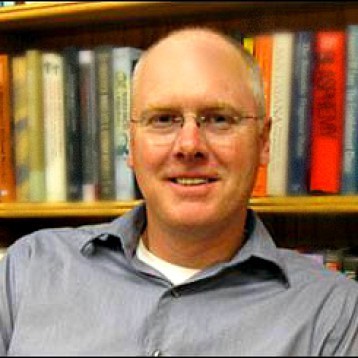 Joseph Parsons of Holloway Literary
Joseph Parsons of Holloway Literary
Joseph has worked in publishing for more than two decades, most recently at the University of North Carolina Press, where he was a senior editor, acquiring broadly in the humanities and social sciences, as well as creative nonfiction, documentary arts, current events, and history, for which one title won the Bancroft Prize. Previously, he acquired broadly for the University of Iowa Press, including for the acclaimed Sightline Books, Muse Books, and New American Canon series. Joe has also worked as a manuscript editor, journal editor for the National Humanities Center, and independent editor and writer, as well as a researcher and reporter.
He has a bachelor’s degree in Russian and East European studies from the University of Michigan and a master’s degree in political science from the University of Illinois. When not walking his dog – itself a full-time job – Joe enjoys reading contemporary fiction, nonfiction, and long-form journalism and watching basketball. Follow Joseph on Twitter @JoePParsons.
What he is seeking: Joseph is currently accepting submissions for:
Non-fiction – Including literary and creative nonfiction, travel and nature writing, current events, history, biography, long-form journalism and scholarly work written for a general audience
Fiction – Contemporary (post-1945) American literary fiction.
Joseph is especially seeking new voices including the work of women, people of color, and others who may have been underrepresented in past years, in particular LGBTQ and immigrant authors.
How to submit: Email a brief query and the first 15 pages of your manuscript pasted in the body of your email to submissions @ hollowayliteraryagency.com In the email subject header, write: Joseph/Title/Genre. You can expect a response in 6 to 8 weeks. If Joseph is interested, he’ll respond with a request for more material. Due to the number of emails he receives, Joseph may only respond if he’s interested.
If you feel that more than one agent at Holloway would be interested in your work, please only send to one agent at a time. Once you receive a response from the first agent you queried, then you may submit to another agent. Any queries sent to more than one agent at the same time will be deleted.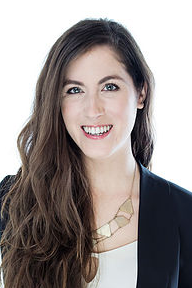 Natalie Grazian of Martin Literary & Media Management
Natalie Grazian of Martin Literary & Media Management
Natalie has a BA in English and Minor in Spanish from Santa Clara University. Upon graduating, she worked as a sales representative for W. W. Norton & Co. and interned for two literary agencies, including Martin Literary & Media Management. For two years, Natalie was the Fiction Editor of The Santa Clara Review, the oldest literary magazine on the West Coast.
What she is seeking: Natalie is currently accepting queries for commercial, upmarket, and literary adult fiction. She would love it if you sent her contemporary fantasy (in the vein of Lev Grossman’s The Magicians). She’s drawn to dark comedy that still carries a beating heart—because at the end of the day, she turns to books to find humanity. She is highly interested in reimagined myths and fairytales from different cultures, historical fiction, and a good quest narrative in any genre. More than anything, she looks for complex characters who make the unrelatable relatable, and for a smart, distinctive narrative voice. At this time, she’s not seeking military thrillers, sports stories, or romance novels.
How to submit: Please include a query letter in the body of your email and attach the first ten pages of your manuscript, preferably as a Word doc. Please send your queries to Natalie@MartinLit.com
ALWAYS check the agency website before submitting. Agents may switch agencies or close their lists, and submission requirements may change.
If these agents do not suit your needs, you can find a comprehensive list of new and established agents seeking clients here: Agents Seeking Clients.
 Joseph Parsons of Holloway Literary
Joseph Parsons of Holloway LiteraryJoseph has worked in publishing for more than two decades, most recently at the University of North Carolina Press, where he was a senior editor, acquiring broadly in the humanities and social sciences, as well as creative nonfiction, documentary arts, current events, and history, for which one title won the Bancroft Prize. Previously, he acquired broadly for the University of Iowa Press, including for the acclaimed Sightline Books, Muse Books, and New American Canon series. Joe has also worked as a manuscript editor, journal editor for the National Humanities Center, and independent editor and writer, as well as a researcher and reporter.
He has a bachelor’s degree in Russian and East European studies from the University of Michigan and a master’s degree in political science from the University of Illinois. When not walking his dog – itself a full-time job – Joe enjoys reading contemporary fiction, nonfiction, and long-form journalism and watching basketball. Follow Joseph on Twitter @JoePParsons.
What he is seeking: Joseph is currently accepting submissions for:
Non-fiction – Including literary and creative nonfiction, travel and nature writing, current events, history, biography, long-form journalism and scholarly work written for a general audience
Fiction – Contemporary (post-1945) American literary fiction.
Joseph is especially seeking new voices including the work of women, people of color, and others who may have been underrepresented in past years, in particular LGBTQ and immigrant authors.
How to submit: Email a brief query and the first 15 pages of your manuscript pasted in the body of your email to submissions @ hollowayliteraryagency.com In the email subject header, write: Joseph/Title/Genre. You can expect a response in 6 to 8 weeks. If Joseph is interested, he’ll respond with a request for more material. Due to the number of emails he receives, Joseph may only respond if he’s interested.
If you feel that more than one agent at Holloway would be interested in your work, please only send to one agent at a time. Once you receive a response from the first agent you queried, then you may submit to another agent. Any queries sent to more than one agent at the same time will be deleted.
 Natalie Grazian of Martin Literary & Media Management
Natalie Grazian of Martin Literary & Media ManagementNatalie has a BA in English and Minor in Spanish from Santa Clara University. Upon graduating, she worked as a sales representative for W. W. Norton & Co. and interned for two literary agencies, including Martin Literary & Media Management. For two years, Natalie was the Fiction Editor of The Santa Clara Review, the oldest literary magazine on the West Coast.
What she is seeking: Natalie is currently accepting queries for commercial, upmarket, and literary adult fiction. She would love it if you sent her contemporary fantasy (in the vein of Lev Grossman’s The Magicians). She’s drawn to dark comedy that still carries a beating heart—because at the end of the day, she turns to books to find humanity. She is highly interested in reimagined myths and fairytales from different cultures, historical fiction, and a good quest narrative in any genre. More than anything, she looks for complex characters who make the unrelatable relatable, and for a smart, distinctive narrative voice. At this time, she’s not seeking military thrillers, sports stories, or romance novels.
How to submit: Please include a query letter in the body of your email and attach the first ten pages of your manuscript, preferably as a Word doc. Please send your queries to Natalie@MartinLit.com
Published on February 06, 2018 07:13
February 1, 2018
19 Calls for Submissions in February 2018 - Paying Markets
 I've assembled nineteen calls for submissions in February. All of these are paying markets, and none charge submission fees. As always, every genre, style, and form is wanted, from speculative fiction to poetry to personal essays.
I've assembled nineteen calls for submissions in February. All of these are paying markets, and none charge submission fees. As always, every genre, style, and form is wanted, from speculative fiction to poetry to personal essays.NOTE: I post calls for submissions on the first day of every month. But as I am collecting them, I post them on my page, Calls for Submissions. You can get a jump on next month's calls for submissions by checking that page periodically throughout the month. (I only post paying markets.)
___________________
The Southern Review. Genre: Poetry. Payment: $25 per printed page with a maximum payment of $200, plus two copies of the issue in which the work appears and a one-year subscription to The Southern Review. Deadline: February 1, 2018. Snail mail submissions only.
The Monkey Collective. Genre: Short stories up to 5000 words in all genres that correspond to anthology theme “the strangest place I’ve been.” Prize: Publication in the magazine and 5% of sales paid out each calendar year. Deadline: February 1, 2018.
The First Line. Genre: Short story beginning with the line: "Leo massaged the back of his neck, thankful the meeting was finally over." Payment: $25.00 - $50.00 for fiction, $5.00 - $10.00 for poetry, and $25.00 for nonfiction (all U.S. dollars). Deadline: February 1, 2018.
Abyss & Apex. Genre: Speculative short stories. Payment: 6 cents/word. Deadline: First week of February.
Canthius. Genre: Poetry and prose from women and genderqueer writers. Payment: $15 per poem and $50 per work of prose. Deadline: February 1, 2018. Snail mail submissions only.
OTHER COVENANTS: Alternate Histories of the Jewish People. Genre: Stories and poems must be in the alternate history genre and must be clearly relevant to the theme of the anthology. Length: 500–15,000 words. Payment: 8 cents/word (CAN). Deadline: February 1, 2018. Accepts some reprints.
Splickety: Extraordinary Exploits. Genre: Flash fiction, between 300 and 1,000 words long. "Bring things close to home in this action-packed adventure issue. Adventures with a supernatural twist. Artifacts with unexplained properties. Creatures that aren’t quite human. We’re looking for a real-world setting with a twist of the speculative in this issue. Think The Librarian, Indiana Jones, Warehouse 13, and Grimm." Payment: 2 cents/word. Deadline: February 9, 2018.
Smoking Pen Press: A Kiss and a Promise. Genre: Romance. Payment: $25 USD, or 2 complimentary copies of the paperback (non US/Canada authors will receive their choice of a one-time payment of $25 USD, or 1 complimentary copy of the paperback). Deadline: February 14, 2018.
The Spectacle. Genre: Poetry, fiction, and nonfiction. Payment: $50. Deadline: February 15, 2018.
Luna Station Quarterly. Restrictions: Open to women. Genre: Speculative fiction. Payment: $5. Deadline: February 15, 2018.
Suburban Review. Restrictions: Open to Australian women, femmes and gender non-conforming folx. Genre: Fiction, creative nonfiction, poetry, comics, art. Payment: $75 - $150. Deadline: February 18, 2018.
Chicken Soup for the Soul. Genre: True stories and poetry. "We are looking for stories that contain a great piece of advice that you were given or advice that you gave to someone else. Whether the advice is about a little thing that improve your everyday life, or major epiphanies that can change a life completely, we want to hear about them and how they made a difference." Payment: $200. Deadline: February 28, 2018.
Ninth Letter. Genre: Poetry and essays. Payment: $25 per page. Deadline: February 28, 2018.
Delusion. Genre: Poetry and short stories on theme of Delusion. Payment: $0.01 per word, minimum of 10.00 dollars. Deadline: February 28, 2018.
Blood is Thicker Anthology. Restrictions: Open to Canadian writers. Genre: Unpublished short stories between 3,000 and 7,500 words with the first line: “It was February 29 again, and I was wondering which member of my family would try to kill me this time.” Payment: CAD $0.02 per word. Deadline: February 28, 2018.
Darkhouse Books: Shhhh… Murder! Genre: Cozy to cozy-noir stories featuring libraries and librarians. Payment: 50% of royalties. Deadline: February 28, 2018. Some reprints accepted.
Darkhouse Books: Sanctuary. Genre: Poetry, flash, short fiction, and creative nonfiction reflecting the theme of sanctuary, refuge, shelter, or asylum, from the perspective of those offering, seeking, denying, or destroying it. Payment: 50% of royalties. Deadline: February 28, 2018. Some reprints accepted.
Mizna. Theme issue: The Playing Field: The Politics of Sports. This themed issue will be an exploration of the way the world of sports reflects critical issues affecting our communities--religion, race, gender, class, colonialism/occupation, patriotism, social justice, etc. We invite writing to explore this topic - poetry, stories, creative essays, flash fiction, comix, and other literary interpretations. Work must be relevant to the Arab-American audience. Payment: Honorarium. Deadline: February 28, 2018.
The New Quarterly. Restrictions: Open to Canadian writers. Genre: Poetry, fiction, nonfiction. Payment: $250 for a short story or nonfiction entry, and $40 per poem or postscript story. Deadline: February 28, 2018. Snail mail submissions only.
Published on February 01, 2018 03:23
January 30, 2018
54 Writing Contests in February 2018 - No entry fees
 For such a short month, February certainly delivers when it comes to writing contests. There are no fewer than 54 free contests this month.
For such a short month, February certainly delivers when it comes to writing contests. There are no fewer than 54 free contests this month.As always, every form and genre is represented. There are prizes for novel manuscripts, poetry, short stories, essays, works of nonfiction, children's books and more. Some of these contests have age and regional restrictions, so be sure to check submission guidelines before submitting.
Many contests are offered annually, so if you miss your ideal contest this year, you can always enter next year. For a month-by-month list of free contests see: Writing Contests
_________________________
United States/Japan Creative Artists Residencies. This is a 3-5 month residency in Japan. Grant: $24,000. Deadline: February 1, 2018.
The John Gardner Fiction Award is sponsored by the Binghamton Center for Writers-State University of New York with support from the Office of the Dean of Binghamton University's Harpur College of the Arts & Sciences. Genre: Novel or collection of fiction published in 2017. Prize: $1,000. Deadline: February 1, 2018.
Wednesday Club Poetry Prize. Restrictions: Adults over 18; living within a 50-mile radius of St. Louis. Genre: Poetry. Two individual poems. Prizes: $500, $300, $150. Deadline: February 1, 2018.
Milt Kessler Poetry Book Award is sponsored by the Binghamton Center for Writers-State University of New York with support from the Office of the Dean of Binghamton University's Harpur College of the Arts & Sciences. Genre: Poetry book in English published in 2017. Prize: $1,000. Deadline: February 1, 2018.
Paterson Fiction Prize. Genre: Published novel or collection of short fiction. Prize: $1,000. Deadline: February 1, 2018.
Allen Ginsberg Poetry Awards. Genre: Poetry, up to five poems per person. Prize: $1,000. Deadline: February 1, 2018.
Paterson Prize for Books for Young People. Genre: Most outstanding published book for young people. There is a $500 award in each category: Pre-K - Grade 3; Grades 4 - 6; Grades 7 - 12. Prize: $500. Deadline: February 1, 2018.
Gannon University Poetry Contest. Restrictions: Entrants must be a US high school student or a home-schooled student in grades nine through twelve.Genre: Poetry. Each student may enter 1 or 2 poems; each poem may be no longer than 50 lines. Prize: First Place: $100.00 Second Place: $75.00 Third Place: $50.00. Deadline: February 1, 2018.
The Jim Baen Memorial Short Story Award. Genre: Short story of no more than 8,000 words that shows the near future (no more than about 50-60 years out) of manned space exploration. Prize: Publication as the featured story on the Baen Books main website paid at the normal paying rates for professional story submissions. Deadline: February 1, 2018.
$1000 for 1000 Words Creative Writing Contest is sponsored by the Leyla Beban Young Authors Foundation. Restrictions: Students enrolled in grades 6-12. Genre: Short fiction of exactly 1000 words. Prize: Two $1,000 scholarship prizes will be awarded, one for grades 6-8 and one for grades 9-12. Seven $100 cash prizes will also be awarded for winning entries, one per grade level. Deadline: February 1, 2018.
Wednesday Club Junior Poetry Contest. Restrictions: High School Students in grades 10 through 12 in High Schools in St. Louis and the St. Louis area. Genre: Poetry. Two individual poems. Prizes: $100, $80, $60, $40, $20, $10 for all honorable mentions. Deadline: February 1, 2018.
The Levis Reading Prize is sponsored by the Department of English and its MFA in Creative Writing program at Virginia Commonwealth University. Restrictions: The prize is given annually for the best first or second book of poetry published in the previous calendar year. Genre: Poetry. Prize: $5000. Deadline: February 1, 2018.
Golfwell. Genre: Golf stories, fiction or nonfiction, 700 words max. Prize: Golfing books. Deadline: February 1, 2018.
Hart Crane Memorial Poetry Award. Genre: Poetry. Prize: $100. Deadline: February 1, 2018.
The Waterman Fund Essay Contest. Genre: Personal essays between 2000 and 3000 words. The topic is, simply, wilderness and wildness. Prizes: The winning essayist will be awarded $1500 and publication in Appalachia Journal. The Honorable Mention essay will receive $500. Deadline: February 2, 2018.
Zocalo Public Square Poetry Prize. Restrictions: Open to US poets only. Genre: Poetry that evokes a connection to place. Prize: $500. Deadline: February 2, 2018. Note: Winning author gives up all rights.
Student Stowe Prize. Restrictions: Open to US high school and college students. Genre: published writing on a social justice or human rights topic, in the spirit of Harriet Beecher Stowe. Prize: Up to $2,500. Deadline: February 2, 2018.
Charles Crupi Memorial Poetry Contest. Restrictions: Open to high school students in Michigan. Genre: Poetry. Prize: 1st place - $250 and publication in The Albion Review, 2nd place - $150 and publication in The Albion Review; 3rd place - $100 and publication in The Albion Review. Deadline: February 3, 2018.
White Oak Kitchen & Cocktails Prize in Southern Poetry. Restrictions: Open to all poets who currently reside in and have had residency in one of the following states for a minimum of 12 consecutive months: Alabama, Arkansas, Florida, Georgia, Kentucky, Louisiana, Mississippi, North Carolina, South Carolina, Tennessee, Texas, Virginia, West Virginia. Genre: Poetry. "WOKC invites poets from across the South to explore the topic of Faith." Prize: $1,500. Deadline: February 4, 2018.
Sweek #My2018 Contest. Genre: Short story about your plans in 2018. Note: your story is not about writing your resolutions for next year, the mission is to give your real life story a fictional layer. Prize: Grand prize $200; Best story per language: $50. Deadline: February 6, 2018.
Nelson Algren Literary Awards is a short story contest sponsored by the Chicago Tribune. This contest is open to residents of the United States. All entries must be: fiction, less than 8,000 words, double spaced, written in English. Prize: One grand prize winner will receive $3,500. Four finalists will each receive $1,000. Five runners-up will each receive $500. Total value of all prizes: $10,000. Deadline: February 7, 2018.
Bethesda Literary Festival Essay and Short Story Contest. The Bethesda Urban Partnership & Bethesda Magazine have partnered to honor local writers at the Bethesda Literary Festival. Genres: Essays and poetry. Adult and high school student categories. Restrictions: Residents of Washington, D.C., Maryland and Virginia are eligible. Prizes: First Place: $500 and published in Bethesda Magazine. Second Place: $250. Third Place: $150. Honorable Mention: $75. Deadline: February 9, 2018.
Life Writing Prize. Restrictions: Writers must be UK residents who have not published a full-length work. Genre: Nonfiction based on a significant portion from the author’s own personal experience; A complete work of fiction or non-fiction of over 30,000 words; Ten or more short stories either in a collection or published individually; A professionally produced theatre script or screenplay, or radio play; Twenty or more poems either in a collection or published individually. Prize: £1500, an Arvon course, two years’ membership to the Royal Society of Literature, a development meeting with literary agent Robert Caskie and a development meeting with an editor at Unbound. Two highly commended writers receive £500, a writing mentor, a development meeting with agent Robert Caskie and a development meeting with an editor at Unbound. Deadline: February 9, 2018.
Luminarts Creative Writing Program. The Creative Writing Competition awards five $5,000 grant awards and Luminarts Fellowships across categories of creative nonfiction, fiction, and poetry. Open to writers between the ages of 18 and 30 years old at the time of application; be enrolled in, or have graduated from, a degree program; and live within 150 miles of the Union League Club of Chicago. Genre: Poetry or prose, fiction and nonfiction. Prize: $5,000 and publication in Luminarts Review, a literary journal. Deadline: February 9, 2018.
Library of Virginia Literary Awards. Restrictions: Open to writers who were born in or are residents of Virginia or, in the case of nonfiction, books with a Virginia theme, are eligible. Genre: Books of poetry, fiction, and nonfiction published in the previous year. Prize: $2,500. Deadline: February 10, 2018.
Writers’ Trust / McClelland & Stewart Journey Prize. Restrictions: Only works from writers who are Canadian citizens, whether living in Canada or abroad, or permanent residents of Canada are eligible. Genre: Short story or excerpt from a fiction work-in-progress first published by a Canadian magazine or annual anthology during the previous calendar year. Prize: $10,000. Deadline: February 12, 2018.
Writers' & Artists' Yearbook Short Story Competition. Genre: Short story. All entries must be original unpublished prose of 2,000 words or fewer. Prize: £500 and publication. Deadline: February 13, 2018.
The Lindquist & Vennum Prize for Poetry is an annual regional prize, presented in partnership by Milkweed Editions and the Lindquist & Vennum Foundation. Restrictions: Open to residents of North Dakota, South Dakota, Minnesota, Iowa, and Wisconsin. Genre: Poetry. Prize: $10,000 as well as a contract for publication to the author of the winning manuscript. Deadline: February 14, 2018.
Harold Morton Landon Translation Award. Genre: Poetry collection translated from any language into English and published in the previous calendar year. Prize: $1,000. Deadline: February 15, 2018.
Bala Kids/Khyentse Foundation Children's Book Prize. Genre: Children's book on Buddhist themes and values. Prize: $5,000 and publication by Bala Kids, an imprint of the Buddhist magazine and publishing house Shambhala. Deadline: February 15, 2018.
Words and Brushes. Genre: Fiction inspired by artwork. Prize: $300 top prize. Deadline: February 15, 2018.
Haiku Society of America Merit Book Awards for Excellence in Published Haiku, Translation, and Criticism. Genre: Published book. Books must have been published in 2016 and must clearly contain a printed 2016 copyright. A member, author, or publisher may submit or nominate more than one title. At least 50 percent of the book must be haiku, senryu, or haibun, or prose about these subjects (books mostly of tanka, for example, are not eligible). Prize: $500. Deadline: February 15, 2018.
Al Smith Individual Artist Fellowships. Restrictions: Open to Kentucky poets, fiction writers, and creative nonfiction writers. Genre: Literary arts. Prize: $7,500. Deadline: February 15, 2018.
Brilliant Flash Fiction. Genre: Flash fiction based on Adam Kluger’s art; 300 words max. Prize: 50 euro first prize (or equivalent amount in your currency), 25 euro second prize,15 euro third prize. Deadline: February 15, 2018.
New England Youth Outdoor Writing Contest. Restrictions: The contest is open to students in New England. Submissions from students in grades 6-8 will be entered in the Junior Division; grades 9-12 will be entered in the Senior Division. Genre: Prose or poem, The topic must be outdoor-oriented (fishing, hunting, boating, canoeing, hiking, camping, nature, ecology, etc.). 500 words max. Prize: $125, $150. Deadline: February 15, 2018.
Scotiabank Giller Prize. Restrictions: Open to books published in Canada in English. Books must be published in Canada in English between October 1, 2017 and February 28, 2018 to be eligible for the 2017 Prize. Must be nominated by publisher. Genre: Fiction. Full-length novel or collection of short stories published in English, either originally, or in translation. Prize: $100,000 to the winner and $10,000 to each of the finalists. Deadline: February 15, 2018.
Raiziss/de Palchi Translation Award. Genre: Poetry - translation into English of a significant work of modern Italian poetry. Prize: $10,000. Deadline: February 15, 2018.
New York City Emerging Writers Fellowship. Restrictions: "Applicants must be current residents of one of the five boroughs, and must remain in New York City for the entire year of the fellowship. Students in degree-granting programs are not eligible to apply, even if the focus of study is not directly related to writing. This program supports emerging writers whose work shows promise of excellence. Applicants can be of any age, but must be in the early stages of their careers as fiction writers and will not have had the support needed to achieve major recognition for their work. We define “emerging writer” as someone who has not yet had a novel or short story collection published by either a major or independent publisher and who is also not currently under contract to a publisher for a work of fiction. Eligible applicants may have had stories or novel excerpts published in magazines, literary journals or online, but this is not a requirement." Genre: Fiction. Grant: $5,000. Deadline: February 15, 2018.
Wiley-Silver Prize in Civil War History. Genre: First book or monograph in Civil War history published in the previous year. Books or monographs published by scholarly or popular presses are eligible. Prize: $2,000. Deadline: February 16, 2018.
Black Caucus of the American Library Association Self-Published E-Book Literary Award. Restrictions: Open to African-Americans. Genre: Self-Published E-Book in fiction and poetry. Prize: $500. Deadline: February 17, 2018.
Past-Year Memoir Contest. Genre: True story about your past year in 17 words. Prize: Free Gotham class of your choosing. Deadline: February 19, 2018.
Lex Allen Literary Festival Prizes. Restrictions: Open to undergraduate college students. Genres: Poetry and fiction. Prize: $100. Deadline: February 20, 2018.
The Matthew Power Literary Reporting Award supports the work of a promising early-career nonfiction writer on a story that uncovers truths about the human condition. Genres: Nonfiction journalism works in progress with “strong, character-driven narratives with detailed scene writing and lyrical description.” Restrictions: The award will not fund proposals to report on armed conflicts where journalists are already imperiled, nor projects that are mainly investigatory. Prize: $12,500 grant and use of the NYU library. Deadline: February 20, 2018.
Everything Change Climate Fiction Contest. Genre: Fiction about climate change. Prize: The winning story will receive a $1000 prize, and nine finalists will receive $50 prizes. Deadline: February 28, 2018.
Restless Books Prize for New Immigrant Writing. Restrictions: Open to first-generation residents of the United States. “First-generation” can refer either to people born in another country who relocated to the U.S., or to American-born residents whose parents were born elsewhere. Genre: Unpublished fiction and nonfiction books. Prize: $10,000 and publication. Deadline: February 28, 2018.
Auditory Cortex. Restrictions: Open to Asian poets. Genre: Poetry. Poems must be written and read in the author’s local variety of English (e.g. Brunei English, Burmese English, Chinese English, Fijian English, Filipino English, Guamanian English, Hawaiian English, Hong Kong English, Japanese English, Kazakh English, Malaysian English, Samoan English, Singapore English, Sri Lankan English, Thai English, Tok Pisin, Tongan English, Vietnamese English, etc.) Prize: First Prize: HK$500, Second Prize: HK$300, Third Prize: HK$200, Highly Commended (up to 8): HK$100 each. Deadline: February 28, 2018.
Outlet Publishing Young Writers' Short Story Competition. Restrictions: Open to ages 16-25, UK residents only. Genre: Short story. Prize: £150 top prize. Deadline: February 28, 2018.
The Gabo Prize for Literature in Translation & Multi-Lingual Texts. Genre: Literary translations and multi-lingual texts. Prize: $200. Deadline: February 28, 2018.
Diana Woods Memorial Award in Creative Nonfiction. Genre: Essay, maximum 5,000 words. Prize: $250 top prize. Deadline: February 28, 2018.
YSCI-FI Flash Fiction Contest. Genre: Science fiction, fantasy, horror. Prize: $250. Deadline: February 28, 2018.
Booksie Young Writer Contest. Restrictions: Open to youth aged 13-18. Genre: Short stories of any genre. Prize: $75-$300. Deadline: February 28, 2018.
Poetry Matters Literary Prizes. Restrictions: Several categories, from middle-school to senior citizens. Genre: Poetry. Prize: 1st prize- $75; 2nd prize- $50; 3rd prize-$35; Honorable Mention- $25. Deadline: February 28, 2018.
Spirit First Meditation Poetry Contest. Genre: Poem on the theme of mindfulness or meditation. Prize: $200. Deadline: February 28, 2018.
SLF Working Class Writers Grant is sponsored by the Speculative Literature Foundation. Genres: Speculative fiction, magical realism. Restrictions: Applicants must be working class (see guidelines page for definition) and demonstrate financial hardship. Available to international writers. Prize: $750. Deadline: February 28, 2018.
Published on January 30, 2018 03:48
January 25, 2018
8 Writing Conferences in February 2018
 February is brutal little month punctuated by a groundhog, chocolates, and valentines. Winter is still with us, but by now the snow has lost its charm. That makes February a good month to turn to writing.
February is brutal little month punctuated by a groundhog, chocolates, and valentines. Winter is still with us, but by now the snow has lost its charm. That makes February a good month to turn to writing.There are eight writing conferences and workshops this month. Notably, the UCLA Extension Writers’ Program is sponsoring a series of workshops on fiction, screenplay writing, and creative nonfiction. If you live near Los Angeles, this conference is worth attending. Ditto for San Francisco and San Diego, both of which feature a host of agents, editors, and professional writers to guide you on your way to publication.
Attending a conference is one of the best things you can do for your writing career. Conferences offer a unique opportunity to network with other writers, meet agents and pitch your book, and learn how the publishing industry works from editors and professionals.
I strongly urge you to plan ahead if you are thinking of attending a writing conference. Many offer scholarships that can significantly reduce the cost. And all of the intensive writing workshops have application deadlines. For a month-by-month list of conferences throughout the year see: Writing Conferences. (You will also find links to resources that can help you find conferences in your area on that page.) If you miss your ideal conference this year, plan for next year.
__________________
The Writers Studio, sponsored by the UCLA Extension Writers’ Program, February 8- 11, 2018, Los Angeles, CA. The conference offers workshops in fiction and creative nonfiction, as well as writing for television and film. Offered by the UCLA Extension Writers’ Program, the Writers Studio brings together a community of writing students to workshop with some of Southern California’s most accomplished writers and teachers. From among the 10 offered, participants choose one workshop in which they work closely with a professional writer in classes limited to no more than 15 people.
San Francisco Writers Conference, Feb. 15-18, 2018, San Francisco, CA. Attendees will join with 100+ presenters and fellow writers from across the country and around the world at this year’s event. The SFWC events are consistently rated among the top writer’s conferences anywhere. Our goal is to help writers become published authors as we help them become better at the craft and business of writing. The SFWC is also one of the friendliest conferences. Presenters this year will include bestselling authors, literary agents, editors, and publishers from major publishing houses. There will be experts on self-publishing, book promotion, platform building, social media, and author websites. The San Francisco Writers Conference has one of the largest faculties of any writer’s conference to ensure the best networking with the people who can help you get published.
South Coast Writers Conference, Feb 16 - 17, 2018, Gold Beach, Oregon. "The South Coast Writers Conference is an eclectic gathering of writers of various genres, novice and published authors, returning and first-time attendees. It is our goal that participants and presenters leave the conference inspired and renewed, with new insights and skills, and better connected to fellow writers and resources. Participation in workshops is limited to 30 students or fewer, so register early to secure a seat in the workshops you want."
31st Annual Southern California Writers’ Conference (and Retreat). February 16 - 18, 2018, San Diego, CA. Faculty: 60+ working, professional authors of fiction, nonfiction & screen, editors & agents. "Founded and run by professional writers the SCWC provides veteran and emerging talent with authoritative guidance to help distinguish those manuscripts that are ready for market consideration." Cost: $350-$425. Manuscript critique & one-on-one consultation additional. Limited to 175 conferees.
Minnesota Writers Workshop. February 17, 2018, St. Paul, MN. A full-day “How to Get Published” writing event. "We’ll discuss your publishing opportunities today, how to write queries & pitches, how to market yourself and your books, what makes an agent/editor stop reading your manuscript, and more. No matter what you’re writing — fiction or nonfiction — the day’s classes will help point you in the right direction. Writers of all genres are welcome." Attending Agents: Eric Smith (P.S. Literary), Michelle Grajkowski (3 Seas Literary), Lauren Jablonski (St. Martin’s Press), Mary Cummings (Betsy Amster Literary), Kelly Van Sant (D4EO Literary), Mari Kesselring (Flux and Jolly Fish Press), Cynthia Ruchti (Books & Such Literary), Laura Zats (Red Sofa Literary), Jennie Goloboy (Donald Maass Literary), Erik Hane (Red Sofa Literary), Lynnette Novak (The Seymour Agency), Yana Makuwa (Graywolf Press), Raela Schoenherr (Bethany House Publishers) and more.
Desert Nights, Rising Stars Writers Conference, February 22 - 24, 2018, Tempe, AZ. "The conference features lectures, panel discussions, readings, and craft classes in poetry, fiction, creative nonfiction, and publishing. The faculty includes: Kaveh Akbar, Charlie Jane Anders, Andrea Avery, Emily Bell, Matt Bell, Cecil Castellucci, Natalie Diaz, Rosemarie Dombrowski and more. The cost of the conference is $350 until December 31 and $400 thereafter. Boxed lunches are available for an additional $14.99 per day. Registration is first come, first served.
St. Augustine Author-Mentor Novel Workshop, Feb 26 - March 1, 2018, St. Augustine, Florida. "The St. Augustine Author-Mentor Novel Workshop creates an intimate and professional environment that combines private meetings with small-group workshops, thus enabling aspiring authors to wisely approach the writing and publication of their novel. At the St. Augustine event, aspiring authors will:
1) Work one-on-one with top authors and savvy market professionals.
2) Apply advanced story and narrative technique to their novel-in-progress.
3) Hone and improve their writer voice and style.
4) Learn the necessary inside mechanics of the publishing business.
5) Leave the workshop with a detailed plan to work towards publication of their novel.
Group workshop sessions will be interspersed with agent and author consultations, workshop assignments, as well as consults with workshop leaders."
Pele's Fire: Write to the Core. February 28 - March 6, 2018, Big Island, HI. Writers' retreat in a breathtaking, in Hawaii. Three teachers, small groups, 1-on-1 consultations, readings. Faculty: Elena Georgiou, Rahna Reiko Rizzuto.
Published on January 25, 2018 03:21
January 22, 2018
3 Million Page Views ... and All I Got Was This Lousy Blog
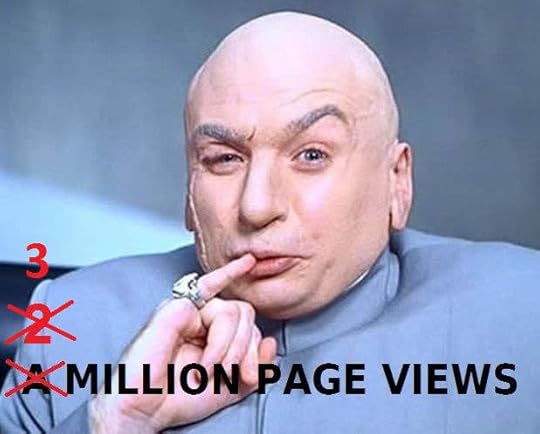 Six years ago (has it really been six years?), someone told me to start a blog. Apparently, I "needed" one. I had no idea why. But I did it, figuring it might be fun.
Six years ago (has it really been six years?), someone told me to start a blog. Apparently, I "needed" one. I had no idea why. But I did it, figuring it might be fun.Then, stuff happened. To my surprise, people began reading my blog. And then quite a few more started to visit, people who weren't directly related to me. (Some of whom, mysteriously, wanted to escort me to Bangladesh.)
After four years a million people had visited my blog. I published a post somewhat facetiously titled "A Million Page Views ... and All I Got Was This Lousy Blog." (I could afford to be a little snarky back then. After all, it had taken four years to reach a million.)
I had no idea what lay ahead.
A year later this blog hit another million - a four-fold increase in traffic. This was not an accident. I had written a post in which I had waxed enthusiastic about blog promotion. And for once - really, literally for once - I followed my own advice. I promoted my blog.
And now, eight months later, this blog has accumulated another million. What's more, the most popular posts this year fetched four times the number of views of last year's most popular posts.
Should I be frightened?
In a way, it is a little frightening when all at once a lot of people are looking at what I post. It means I'm probably doing something right. And that thought is a little disconcerting. Since when have I done anything right?
Promotion Strategies
After I got over my initial confusion about what a blog was supposed to be (Cynical Observations of Society? Pearls of Wisdom? What My Cat Did Today?), I realized it might be useful as a means of organizing information that I had been storing in files - actual paper files. But the real revelation came when it dawned on me that there were these things called links and that I could put them in my blog, That meant I could use my blog as a tool! I could simply include links to all those sites in convenient blog posts. So, I started to organize all my resources: agents accepting sci-fi and fantasy, magazines that would actually pay me for my short stories, freelance publications, submission calls, everything I had laboriously accumulated. And because I actually needed those posts for my own nefarious purposes, I really put my back into them. Then three million other people found my blog.
If that sounds like a just-so story, it is. It took more than simply posting on my blog to get all that traffic. Just like writing, I had to promote, I had to be "discoverable." After all, there are a couple million blog posts written every day. How was anyone going to find mine?
At first I promoted by writing guest blogs, with modest results. Then, I promoted by posting my blog articles on other sites, like LinkedIn and Medium. Also, modest results. I fooled around with SEO meta tags, and found common search terms on Google to include in my titles. None of that had any profound effect.
And then came Facebook.
Facebook is my greatest single source of traffic, with people coming straight off Google coming in second. It terms of marketing platforms, nothing else comes close to Facebook. And the more you use it, the more word gets around.
Lessons Learned
If there is one thing I have learned from this blog, it's that if you want people to read what you have written, you have to promote your work every day. Promotion is like breathing. When you stop doing it, you're in trouble. Whether it's your blog, your short story, your poetry, anything you've put into words and posted - you have to let people know it's there. In the age of the Internet, the online written word has a short lifespan. You can't count on it being seen for more than a day or two at most.
The other lesson learned, and this applies to writing a blog, a book, a short story, poetry, or a personal essay - is write for yourself. The fact that you have an audience can be a little daunting, and it can tempt you to write for them. But the minute you lose track of what's in your heart, and what you are compelled to say, your writing will become hollow.
So, will I become corrupted, now that over a hundred thousand people are visiting each month? Probably not. My blog is just a tool, and one that I still use on a daily basis. And anyone else who wants to use it is more than welcome.
Here are some posts with good information for promoting your blog (and other writing):
10 Simple Ways to Promote Your Blog (For Writers)
Flogging your Blog
How to Get 40,000 Readers Without Guest Blogging
Published on January 22, 2018 10:19
January 21, 2018
January 21st, 2018
Here are three new agents actively seeking clients. Julia Livshin (independent agent) is primarily interested in literary fiction and quality commercial fiction, but is also on the lookout for narrative nonfiction, memoir, and children’s literature. She’s particularly excited about cultivating new writers. Meg Davis (Fletcher & Company) is drawn to novels with a deep sense of place. Erin McFadden (Fletcher & Company) wants both fiction and nonfiction.
ALWAYS check the agency website before submitting. Agents may switch agencies or close their lists, and submission requirements may change.
If these agents do not suit your needs, you can find a comprehensive list of new and established agents seeking clients here: Agents Seeking Clients.
_____________________
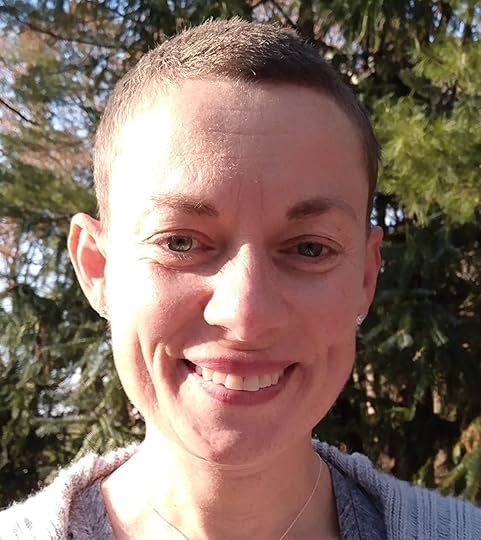 Julia Livshin
Julia Livshin
Julia Livshin got her start as an intern at The Atlantic, where she later became an editor and worked with writers like John Updike, Joyce Carol Oates, Christopher Buckley, Roxana Robinson, and many others. She has a soft spot for short stories and thinks that discovering a new young writer is one of the greatest thrills. She’s worked as a freelance book editor, as well as a copy editor for Random House and Grove Atlantic, and has reviewed fiction for The New York Times Book Review, The Washington Post Book World, and other publications. She grew up in Chicago, graduated from Duke University, and received a masters degree is Slavic languages and literature from Harvard University.
Whats she is seeking: She is primarily interested in literary fiction and quality commercial fiction, but is also on the lookout for narrative nonfiction, memoir, and children’s literature. She’s particularly excited about cultivating new writers.
How to Submit: Please send queries to jlivshin@gmail.com. Queries should include the first fifty pages of your manuscript, as well as a brief synopsis and a bio.
________________
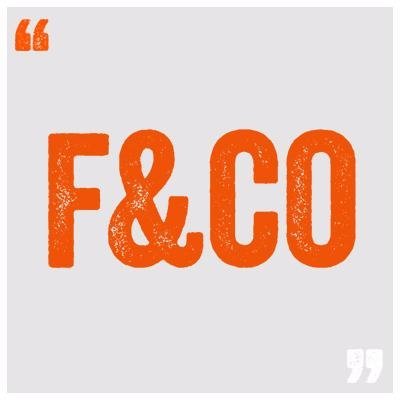 Meg Davis of Fletcher & Company
Meg Davis of Fletcher & Company
Meg joined Fletcher & Company in 2017 after helping ghostwrite a memoir in the hills of Tennessee. Before that, she spent time backpacking Europe and Southeast Asia and working in journalism. She graduated from the University of Tennessee with a BA in English Literature and Psychology.
What she is looking for: Novels that have a strong character voice and a deep sense of place. "I am drawn to stories that have broken and flawed characters with complicated family structures and histories, but whose voice is honest as they attempt to navigate difficult relationships and circumstances. In non-fiction, I enjoy books that focus on social justice issues, the south, and history-based narratives that deal with women, the Civil Rights era, and cultural movements."
She is not interested in: Romance novels, science and technology oriented books, horror, and pop culture or fads.
How to submit: To query, please send a letter, brief synopsis. and the first 5-10 pages of the manuscript/proposal pasted into the body of the email to info@fletcherandco.com. Please do not include email attachments with your initial query, as they will be deleted.
_____________________
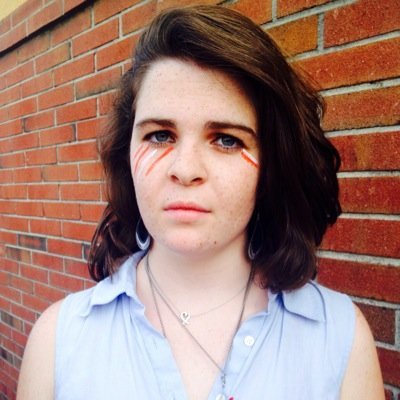 Erin McFadden of Fletcher & Company
Erin McFadden of Fletcher & Company
Erin attended Rutgers University-New Brunswick, and studied English Literature and Economics, with an Art minor.
What she is seeking: Nonfiction and fiction. "Social sciences and narrative/journalistic nonfiction stand next to capital-L Literature on my bookshelves, with some memoir and essays spread throughout to bridge the gaps. For fiction, if the characters & story are suited for it, bring on a challenging structure (think Only Revolutions), epic length (Infinite Jest), and complex intergenerational webs (Homegoing), I'll take them. Striking imagery is my weakness, especially with an emotional punch to match. And in both fiction and fact, books that fully illuminate a world - especially a vivid, unfamiliar one - are the ones that stick to me."
She is not interested in: Police dramas, High Fantasy, romance, picture and middle grade books. "I’ve also read enough dystopia to last me until the next election cycle."
How to submit: To query, please send a letter, brief synopsis. and the first 5-10 pages of the manuscript/proposal pasted into the body of the email to info@fletcherandco.com. Please do not include email attachments with your initial query, as they will be deleted.
ALWAYS check the agency website before submitting. Agents may switch agencies or close their lists, and submission requirements may change.
If these agents do not suit your needs, you can find a comprehensive list of new and established agents seeking clients here: Agents Seeking Clients.
_____________________
 Julia Livshin
Julia LivshinJulia Livshin got her start as an intern at The Atlantic, where she later became an editor and worked with writers like John Updike, Joyce Carol Oates, Christopher Buckley, Roxana Robinson, and many others. She has a soft spot for short stories and thinks that discovering a new young writer is one of the greatest thrills. She’s worked as a freelance book editor, as well as a copy editor for Random House and Grove Atlantic, and has reviewed fiction for The New York Times Book Review, The Washington Post Book World, and other publications. She grew up in Chicago, graduated from Duke University, and received a masters degree is Slavic languages and literature from Harvard University.
Whats she is seeking: She is primarily interested in literary fiction and quality commercial fiction, but is also on the lookout for narrative nonfiction, memoir, and children’s literature. She’s particularly excited about cultivating new writers.
How to Submit: Please send queries to jlivshin@gmail.com. Queries should include the first fifty pages of your manuscript, as well as a brief synopsis and a bio.
________________
 Meg Davis of Fletcher & Company
Meg Davis of Fletcher & CompanyMeg joined Fletcher & Company in 2017 after helping ghostwrite a memoir in the hills of Tennessee. Before that, she spent time backpacking Europe and Southeast Asia and working in journalism. She graduated from the University of Tennessee with a BA in English Literature and Psychology.
What she is looking for: Novels that have a strong character voice and a deep sense of place. "I am drawn to stories that have broken and flawed characters with complicated family structures and histories, but whose voice is honest as they attempt to navigate difficult relationships and circumstances. In non-fiction, I enjoy books that focus on social justice issues, the south, and history-based narratives that deal with women, the Civil Rights era, and cultural movements."
She is not interested in: Romance novels, science and technology oriented books, horror, and pop culture or fads.
How to submit: To query, please send a letter, brief synopsis. and the first 5-10 pages of the manuscript/proposal pasted into the body of the email to info@fletcherandco.com. Please do not include email attachments with your initial query, as they will be deleted.
_____________________
 Erin McFadden of Fletcher & Company
Erin McFadden of Fletcher & CompanyErin attended Rutgers University-New Brunswick, and studied English Literature and Economics, with an Art minor.
What she is seeking: Nonfiction and fiction. "Social sciences and narrative/journalistic nonfiction stand next to capital-L Literature on my bookshelves, with some memoir and essays spread throughout to bridge the gaps. For fiction, if the characters & story are suited for it, bring on a challenging structure (think Only Revolutions), epic length (Infinite Jest), and complex intergenerational webs (Homegoing), I'll take them. Striking imagery is my weakness, especially with an emotional punch to match. And in both fiction and fact, books that fully illuminate a world - especially a vivid, unfamiliar one - are the ones that stick to me."
She is not interested in: Police dramas, High Fantasy, romance, picture and middle grade books. "I’ve also read enough dystopia to last me until the next election cycle."
How to submit: To query, please send a letter, brief synopsis. and the first 5-10 pages of the manuscript/proposal pasted into the body of the email to info@fletcherandco.com. Please do not include email attachments with your initial query, as they will be deleted.
Published on January 21, 2018 09:55
January 11, 2018
Top 10 Publishing Posts of 2017
 In January, I usually take a look at my posts from the previous year, just to see what struck a chord with my readers. As usual, the most popular posts were free writing contests and calls for submissions. These often made it into the tens of thousands of views. (I didn't include them here. It would have made for a repetitive list.)
In January, I usually take a look at my posts from the previous year, just to see what struck a chord with my readers. As usual, the most popular posts were free writing contests and calls for submissions. These often made it into the tens of thousands of views. (I didn't include them here. It would have made for a repetitive list.)Some posts were a lot more popular than I had anticipated. The post about writers who published their first novels after the age of 40, for example, got over 4,000 views. (I didn't expect that, but it seems there are a lot of older writers out there. I, of course, am one of them. Hence the post.)
What was also interesting was the fact that for all of these posts, the number of views topped my most popular posts from last year by 400%. In spite of the self-publishing boom, lots of people are interested in getting traditionally published.
___________________
TOP 10 POSTS OF 2017
#10 Getting Your Self-Published Book Into Libraries (4013 views)
#9 15 Famous Authors Who Were Published After 40 (4118 views)
#8 12 Agents Representing Short Story Collections (4282 views)
#7 An Insider's View of the Publishing Business (4338 views)
#6 4 New Literary Agencies Seeking Clients (4628 views)
#5 2 New Literary Agents Actively Seeking Fiction, Memoir, Pop Culture & more (4707 views)
#4 13 Paying Markets for Flash Fiction (5136 views)
#3 27 Great Websites for Writers (6531 views)
#2 17 Publishers Accepting Unagented Short Story Collections (8385 views)
And my top post was (drum roll) ...
#1 11 Agents Seeking Literary Fiction NOW (11,277 views)
Published on January 11, 2018 04:44



